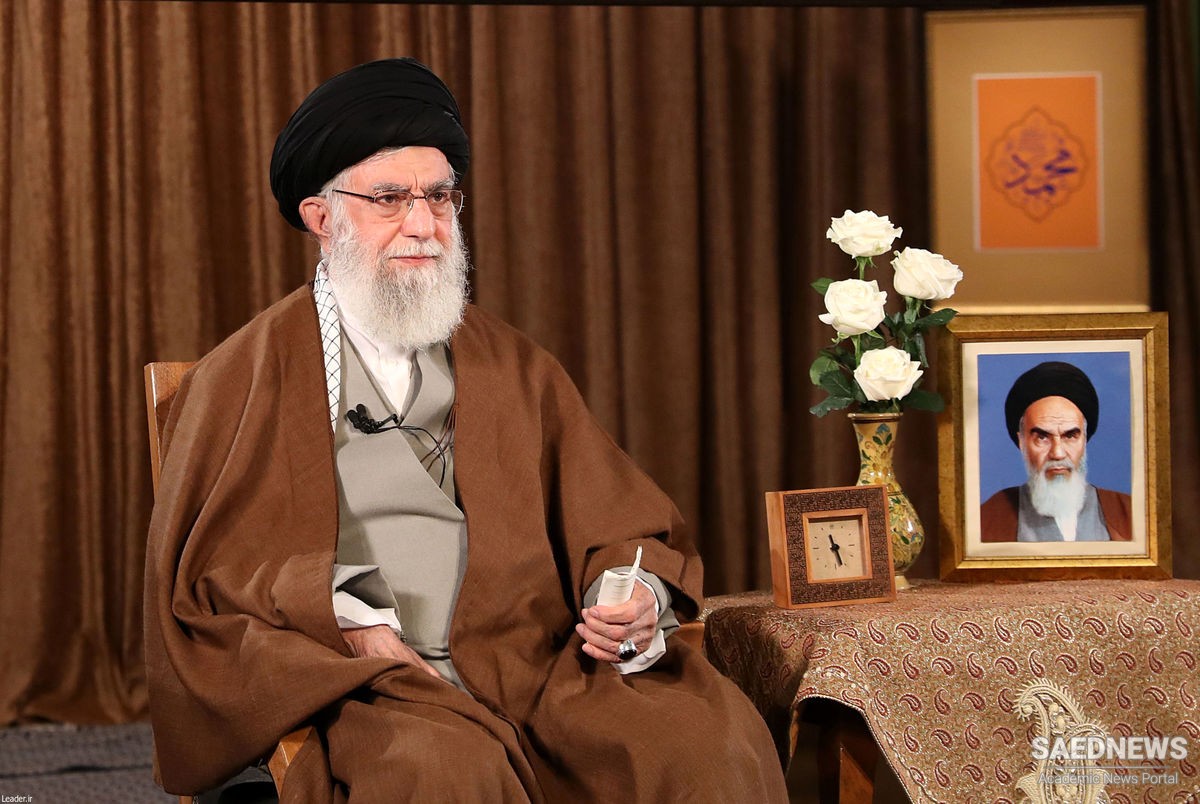"Based on the sovereignty of the command [of God] (velāyat-e amr) and continuous religious leadership (imāmat), the constitution prepares the background for the actualization of leadership by a qualified jurisprudent who is recognized as leader by the people (“Administration of affairs should be by those scholars who are learned in regard to God and that which He has permitted and that which He has forbidden”) this leadership protects various institutions against deviations in fulfilling their authentic Islamic responsibilities."
From the perspective of Islam, governance does not derive from the class position or dominance of a group or an individual. On the contrary, it is the crystallization of the political ideal of a nation with a common faith and perspective that must be organized so that in the process of its intellectual and ideological development it can carve out its path toward its ultimate goal (movement toward God). In the flow of its revolutionary evolution, our nation was cleansed of the dust and rust of the reign of decadence; it cleansed itself of the intellectual alien impurities. It returned to the authentic Islamic worldview and intellectual positions. Now it is determined to establish its exemplary model society (iswa) based on Islamic criteria.
On these bases, the constitution’s calling is to actualize the ideological premises of the uprising and to create conditions where one can be raised with the exalted universal Islamic values. With respect to the Islamic content of the Iranian Revolution, which was a movement for the victory of all the oppressed people over their oppressors, the constitution prepares the ground for continuing this revolution at home and abroad. Specifically, it strives to expand international relations with other Islamic movements and people in order to pave the way for the formation of a single, universal community, in accordance with the Qur’anic verse, “Verily, this Brotherhood of yours is a single Brotherhood, and I am your Lord and Cherisher: therefore Serve Me (and no other)” (21: 92), to also assure that the continuous struggle for the emancipation of the deprived and oppressed nations of the world is strengthened.
Considering the characteristics of this great uprising, the constitution is the guarantor that no kind of intellectual or social tyranny, or economic monopoly is instituted. It strives to break away from the system of tyranny and to hand over the destiny of people to themselves, in accordance with the Qur’anic verse, “He releases them from their heavy burdens and from the yokes that are upon them” (7: 157). In establishing, on the basis of ideological interpretation, political institutions and organs that are the basis of the society, the pious will take on the responsibility of governing and administering the country, in accordance with the Qur’anic verse, “My servants, the righteous, shall inherit the earth” (21: 105). Legislation that projects the criteria for the administration of society proceeds on the course of Qur’an and the sunna (tradition). Consequently, serious and meticulous supervision on the part of just, devout, and committed Islamic scholars is a necessary and definitive affair.
The objective of government is to foster the human being in the direction of the divine order, in accordance to the Qur’anic verse, “And to Allah is the final goal (of all)” (24: 42), in order to prepare the grounds for the expression and blossoming of aptitudes for the purpose of manifesting the theomorphic dimensions of man (“Comport yourself after the conduct of God”). This objective cannot be attained unless all segments of society actively and extensively participate in the developmental process of the society. In regard to this orientation, the constitution prepares the background for all members of society to participate in all stages of political decision making as well as the making of decisions that shape their destiny. This is to assure that each person, in the process of human development, is involved with and assumes responsibility for growth, augmentation, and leadership; this is indeed the actualization of the governance of the oppressed on earth, in accordance with the Qur’anic verse, “And We wished to be gracious to those who were being depressed on the land. To make them leaders (in faith) and make them heirs” (28: 5).


 The Struggle for Establishing a New Form of Governance
The Struggle for Establishing a New Form of Governance














































